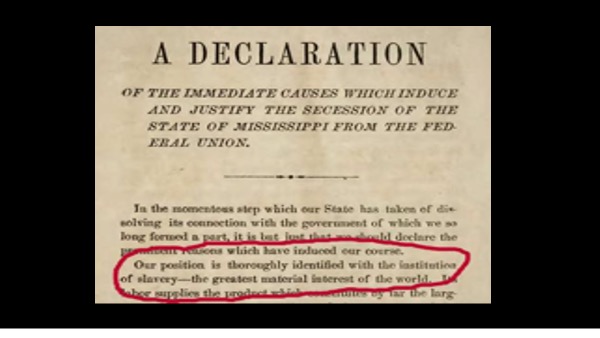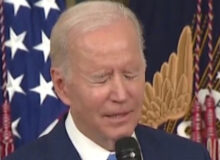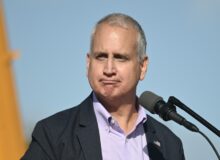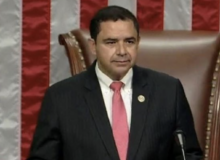Republican presidential candidate and former South Carolina Gov. Nikki Haley is under fire because, at a recent event, she refused to mention slavery as one of the chief causes of the Civil War. The question can be settled quickly. Just ask the slave states. They were adamant that they left the union over slavery.
Haley was at a town hall event in New Hampshire, where she was taking questions from the audience. One attendee asked Haley for her assessment of the reasons the Civil War broke out in 1860. Haley’s answer was a significant word salad failure.
“I mean, I think the cause of the Civil War was basically how government would run. The freedoms and what people could and couldn’t do,” Haley started with her reply.
Then she asked the audience member what he thought, and he amusingly replied, “I’m not running for president.”
“I think it always comes down to the role of government and what the rights of the people are,” Haley continued. “I will always stand by the fact that I think government was intended to secure the rights and freedoms of the people. It was never meant to be all things to all people,” she said.
The man seemed flabbergasted and retorted, “In the year 2023, it’s astonishing to me that you answer that question without mentioning the word slavery.”
Ouch.
Asked what caused the Civil War, Nikki Haley refuses to mention slavery: “What do you want me to say about slavery? Next question.” pic.twitter.com/cEMW3Cn9ku
— Biden-Harris HQ (@BidenHQ) December 28, 2023
Haley tried a smart aleck reply that fell flat, too, saying, “What do you want me to say about slavery?”
Neoconfederate apologists are fond of saying that the war was not about slavery but it was instead about states’ rights.
Well, sure. That is true… but the “right” those seceding states wanted to safeguard was slavery!
You don’t have to take my word for it. Take the word of the seceding slave states themselves!
As they left the union in 1860 and 1861, many early seceding slave states issued secession statements. And all of them mentioned slavery as the chief reason they were leaving the union.
The initial states to leave the union — Georgia, Mississippi, South Carolina, Texas, and Virginia — all issued formal declarations of secession.
So, what did they say about slavery? A lot, actually.
Georgia, for instance, said right in its first paragraph that it was leaving the union because: “For the last ten years we have had numerous and serious causes of complaint against our non-slave-holding confederate States concerning the subject of African slavery.”
Georgia’s secession declaration goes on to mention “slavery” or “slaves” more than two dozen times.
Mississippi’s declaration says straight out, “Our position is thoroughly identified with the institution of slavery– the greatest material interest of the world.” It goes on to mention slavery or slaves seven times.
South Carolina’s statement uses the words slave or slavery 18 times. In its statement, the state added that returning runaway slaves and maintaining slavery was so important at the signing of the Constitution that “This stipulation was so material to the compact, that without it that compact would not have been made.” In other words, there would be no U.S.A. without the protection of slavery.
Texas used the words slave or slavery 22 times. And Texas didn’t just dance around the issue, either. They stated in no uncertain terms that they were accepted into the union as a slave state and intended to stay a slave state. And even pointedly said that slavery was the proper racial balance.
“[Texas] was received as a commonwealth holding, maintaining and protecting the institution known as negro slavery– the servitude of the African to the white race within her limits– a relation that had existed from the first settlement of her wilderness by the white race, and which her people intended should exist in all future time,” the Texans wrote.
Finally, Virginia only mentioned slavery once. That was when the secession declaration noted that the U.S. government was engaging in the “oppression of the Southern Slaveholding States.” But that pretty much says it all, doesn’t it?
Sorry, folks. But if you can’t believe the actual words of the states themselves for why they left the union, what can you believe?
Follow Warner Todd Huston on Facebook at facebook.com/Warner.Todd.Huston or Truth Social @WarnerToddHuston.






